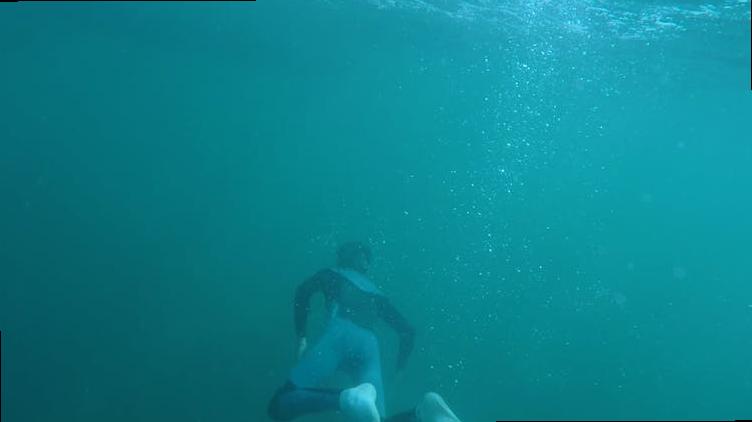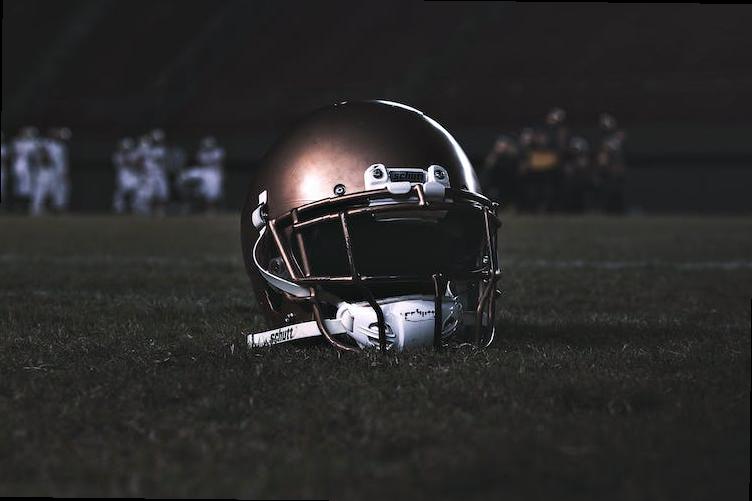
7 Top International Horse Racing Events For Betting
Horse racing has been a popular sport for centuries around the world, drawing crowds and…

In the state of Minnesota, nonprofit organizations have the opportunity to obtain a gambling license for charitable purposes. However, not all types of games are allowed for fundraising through gambling activities. Understanding the types of games allowed is particularly important for those who are considering obtaining a nonprofit gambling license.
The Minnesota Gambling Control Board has established guidelines that govern the types of games that can be played under a nonprofit gambling license. Generally, these games fall into two categories: “Class A” and “Class B” gambling.

Class A gambling typically involves games of chance, such as bingo, pull-tabs, and paddlewheels. These games are relatively simple and easy to understand, and are often used for fundraising events.
Class B gambling involves more complex games of chance, such as sports pools or tipboards. These games require more strategy and skill, and are typically used to appeal to a wider audience of potential participants.
It should be noted that not all types of gambling are allowed in Minnesota under a nonprofit gambling license. Games that involve wagering on outcomes not related to a sporting event, such as casino-style games, are generally prohibited.
Overall, understanding the types of games allowed under a nonprofit gambling license is crucial for those looking to raise funds through gambling activities in Minnesota. By adhering to state guidelines, nonprofits can ensure that their fundraising efforts are both successful and legally compliant.
A raffle is defined as a game of chance where tickets are sold and drawn randomly for a prize or collection of prizes. In Minnesota, non-profit organizations are allowed to hold raffles as a form of gambling as long as they have obtained the required license from the state. To acquire this license, the organization must meet certain criteria and adhere to specific regulations, such as ensuring that all proceeds from the raffle go towards their non-profit mission.
The license application process requires the organization to submit various documents and pay a fee. The Minnesota Gambling Control Board is responsible for reviewing these applications and overseeing the conduct of licensed raffles.
It is important for organizations to comply with these regulations to avoid any legal repercussions. Failure to comply with state laws could result in the loss of the organization’s non-profit status and penalties. It is also important to note that raffles conducted without a license are considered illegal gambling and could result in criminal charges.
In conclusion, holding a raffle in Minnesota requires a non-profit organization to obtain a state gambling license and follow specific regulations to ensure compliance with state laws. Check out the latest New non gamstop casino bonus offers and enjoy the best non gamstop casino bonuses available online.
Bingo is a popular game played in Minnesota as a form of nonprofit gambling that requires a license. Nonprofit organizations that wish to conduct bingo games must apply for a license through the Minnesota Gambling Control Board. These organizations must meet certain criteria to be eligible for a license, including being registered as nonprofit in the state of Minnesota and having conducted business for at least three years.
The license application process requires organizations to submit specific information about the bingo games they plan to conduct, including the dates and locations of the games, the prizes to be awarded, and the number of games to be played. The Minnesota Gambling Control Board oversees the implementation of these rules and regulations, as well as the ongoing management and monitoring of licensed bingo games.
In addition to a license, nonprofit organizations that conduct bingo games in Minnesota must also adhere to strict rules and regulations regarding the conduct of the games. These rules cover the management of funds, the conduct of games, and the distribution of prizes. Violations of these rules can result in penalties, including fines and the revocation of a nonprofit’s gambling license.
Overall, the nonprofit gambling license for bingo games in Minnesota is a highly regulated process that ensures the integrity and fairness of the games while also providing revenue for charitable causes.
Pull-tabs are one of the forms of gambling that are authorized under a Minnesota nonprofit gambling license. A pull-tab is a small paper form that has perforated removable tabs. These tabs conceal symbols that, when revealed, determine whether the ticket is a winner or not. Pull-tabs are similar to lottery scratch tickets, but they are typically sold in a dispenser box rather than individually.
In Minnesota, pull-tabs can only be sold by licensed charitable organizations, and the proceeds must go to a nonprofit cause. Pull-tabs were first authorized for use in Minnesota in 1981, and they quickly became a popular form of gambling in the state.
Under Minnesota law, organizations must obtain a permit from the state to sell pull-tabs. The organizations must also submit monthly reports on the sales and prizes paid out for each pull-tab game they operate. The state imposes various regulations on pull-tab games, such as limiting the maximum prize amount and requiring a certain percentage of sales to be allocated to charitable causes.
In summary, pull-tabs are an authorized form of gambling that can be used by licensed charitable organizations in Minnesota. These paper forms with removable tabs have symbols that determine whether or not they are winners. Organizations must comply with state regulations and limitations when conducting pull-tab games, and the proceeds must be used for charitable purposes.
Tipboards are a type of legal charitable gambling in Minnesota that requires a nonprofit organization to obtain a gambling license from the state. They are essentially a type of betting game where individuals purchase a square or rectangle on a board, then wait for the result of a random drawing to see if their square matches the winning numbers. The winning numbers are usually determined by the last digits of the daily or weekly lottery numbers.
There are specific rules that govern the operation of tipboards. The nonprofit organization must keep accurate records of all sales and payouts, and must ensure that all players are at least 18 years old. Additionally, there are limits on the amount of money that can be taken in and the amount of prizes that can be awarded.
Tipboards are popular among nonprofit organizations in Minnesota because the proceeds can be used to support charitable causes. However, it is important to note that they should be operated responsibly and within the bounds of the law to avoid any legal penalties.
In the context of MN nonprofit gambling license, “sports-themed” refers to any gambling games, events or machines that are based on or inspired by sports. Nonprofit organizations in Minnesota can apply for gambling licenses to operate bingo, pull-tabs and other games of chance for fundraising purposes. Sports-themed gambling is a popular choice for many non-profit organizations as it appeals to sports fans and can potentially attract more players and revenue.
For example, a nonprofit organization may apply for a license to host a sports-themed bingo game, where the bingo cards are customized with sports-related symbols, logos or images. The nonprofit might also rent out a sports bar or venue to host a sports-themed pull-tab event, where the pull-tabs display images of sports teams or players. Additionally, nonprofit organizations may consider partnering with sports teams or organizations in order to promote their sports-themed gambling games and events.
However, nonprofit organizations must follow strict rules and regulations when applying for gambling licenses in Minnesota. For example, profits generated from gambling must be used for charitable purposes, and organizations must be transparent about their funding allocations. By offering sports-themed gambling games and events, nonprofit organizations can potentially raise more funds for their causes while also providing entertainment and fun for sports fans.
In Minnesota, nonprofit organizations can apply for a gambling license to conduct lawful gambling activities. Recently, there has been a growing trend of conducting gambling activities online. Nonprofit organizations can apply for an online gambling license to allow their members to participate in lawful gambling activities from the comfort of their own homes. This has made it easier for nonprofit organizations to raise funds and support their causes.
However, it is important to note that not all online casinos are safe and reliable. It is crucial for individuals to carefully research and evaluate online casinos before participating in any gambling activities. Nonprofit organizations must also ensure that they are partnering with trustworthy and reputable online casinos when obtaining their online gambling license.
Check out the Safe non gamstop casinos that feature high-quality game providers. These casinos have been verified and approved by industry experts and have strict policies and procedures in place to protect their customers’ financial and personal information. By partnering with these safe and reliable online casinos, nonprofit organizations can provide their members with an enjoyable and secure gambling experience while also supporting their causes.
Board games are a popular form of entertainment that can be enjoyed by people of all ages. In the state of Minnesota, nonprofit organizations can use board games as a method of fundraising through gambling. To do so, they must apply for and obtain a nonprofit gambling license.
Under current Minnesota law, board games fall under Class A gambling activities. This means that they are low-stakes games in which the maximum bet per player is $10 and the total prize pool for any one game cannot exceed $200. Examples of board games that can be used for gambling include bingo, pull tabs, and tip boards.

To obtain a nonprofit gambling license, organizations must meet certain criteria set by the state. They must be in existence for at least three years, have a primary purpose other than gambling, and have at least five active members who are not related by blood or marriage. Additionally, the organization must use at least 70 percent of the proceeds from gambling for charitable purposes.
Once an organization has obtained a nonprofit gambling license, they must follow strict rules and regulations set by the state. This includes keeping detailed records of all gambling activity, submitting monthly reports to the Minnesota Gambling Control Board, and ensuring that all games are conducted in a fair and legal manner.

Overall, board games can be a fun and effective way for nonprofit organizations to raise funds through gambling in Minnesota, but it is important to follow all rules and regulations set by the state.
Casino nights are a popular fundraising event for nonprofit organizations in Minnesota that hold a gambling license. These events provide an opportunity for attendees to enjoy casino-style games such as blackjack, poker, and roulette. The proceeds from the event are used to fund the nonprofit organization’s charitable activities.
To hold a casino night event, the nonprofit organization must obtain a license from the Minnesota Department of Public Safety, which oversees gambling in the state. The organization must also comply with certain rules and regulations, such as ensuring that all participants are at least 18 years of age and that no one is intoxicated.
During the event, the organization must ensure that all gambling activities take place within the designated area and that all games are conducted in accordance with the rules of the gambling license. The organization must also keep accurate records of all income and expenses related to the event.
Overall, casino nights are a fun and engaging way for nonprofit organizations to raise funds for their charitable activities, while also providing an entertaining night out for attendees. While organizing these events can be complex, proper compliance with Minnesota’s gambling laws and regulations can help ensure a successful and profitable event.
Carnival games are a popular form of entertainment that involves playing games and winning prizes. In Minnesota, nonprofit organizations can obtain a gambling license to offer carnival games as a way to fundraise for their charitable causes. These games typically include classics such as ring toss, balloon darts, and basketball shooting games.
To obtain a gambling license, nonprofit organizations must comply with Minnesota state regulations and submit an application to the Minnesota Gambling Control Board. Once the license is approved, the organization can offer carnival games at events such as fairs, festivals, and fundraisers.
Carnival games can be a fun and exciting way to raise money for a good cause, but it is also important to ensure that they are operated in a responsible and ethical manner. Organizations must adhere to strict rules to ensure fair play and prevent problem gambling.
If you’re looking for an alternative to mobile gaming, consider trying out non gamstop online casinos. These casinos provide a safe and regulated environment for online gambling without the restrictions of gamstop. However, it is important to gamble responsibly and within your means.
Fantasy sports is a popular online game where players create their virtual teams of professional sports players and compete against each other. In the context of MN nonprofit gambling license, fantasy sports falls under the category of lawful gambling. To conduct fantasy sports tournaments, an organization needs to obtain a license from the Minnesota Gambling Control Board.

To qualify for a nonprofit gambling license, an organization must primarily exist for religious, charitable, or educational purposes. The money generated through fantasy sports tournaments must also be directed towards the organization’s lawful purposes. The organization must also ensure that the players participating in the game are 18 years or older.
Fantasy sports have gained immense popularity in recent years, and its inclusion as a lawful gambling activity has provided an opportunity for nonprofit organizations to raise funds. Additionally, with advancements in technology, playing fantasy sports has become more convenient through mobile applications and online platforms.
In conclusion, fantasy sports is a thriving industry that falls under the category of lawful gambling in Minnesota. Organizations looking to conduct fantasy sports tournaments must ensure they comply with the licensing requirements and direct the profits towards their lawful purposes. If you’re looking for Non-Gamstop Roulette Bonuses, check out our recommended list of non gamstop roulette casinos.
In conclusion, obtaining a Minnesota nonprofit gambling license can be a valuable opportunity for charitable organizations to fundraise and support their missions. The application process can seem overwhelming, but with careful planning and attention to detail, it can be a relatively straightforward process. It is important to ensure that all legal and regulatory requirements are met, such as maintaining accurate records and adhering to the state’s charitable gaming laws. Nonprofit organizations must also remember that while gambling can be a significant source of revenue, it should not become the primary focus of their activities. Fundraising efforts should also include diverse and sustainable methods to support the organization’s goals. Overall, a Minnesota nonprofit gambling license can be a valuable asset for charitable organizations looking to raise funds, but it is important to approach it with care, responsibility, and a long-term perspective on supporting the organization’s mission.